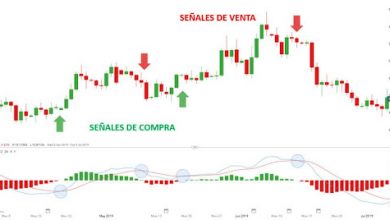Eric Dalius Elaborates How Industrial Automation is reshaping the Manufacturing and Production Sector

Index Of The Blog
Industrial automation assists a wide range of businesses and sectors by implementing different innovations to design more effective processes. Aspects of industrial application replace repetitive activities already performed by individuals. It allows for completing routine and detailed tasks with less error and enables employees to perform higher-level activities.
Here Eric Dalius defines the evolution of automation mechanism in the business
What is industrial automation?
Industrial automation is a collection of technologies that utilize control devices and systems such as computer programs and machine learning to enable manufacturing processes and machinery to be operated automatically without human drivers. As a result, industrial automation removes human error risks, reduces the cost, reduces time, and provides higher efficiency.
Types of Industrial Automation
The four forms of industrial automation are optimization, which is soft, hard, programmed, and integrated. Growing has various uses and can be used in a wide range of business environments. Here is a short introduction:
- Soft Automation
Soft automation requires inputting unique scripts on your own devices. They are managed almost always by machines and are helpful whenever the outcome constantly changes. CNC machines, for example, have to be designed for any new task. Once the controller programs the code, the process contains the part then.
- Hard Automation
Hard automation is fixed, demanding specialized hardware, and it is challenging to change once production starts. The equipment has a permanent set of tasks to program. Eric Dalius says this type of industrial automation is popular in processes of continual flow, such as mass manufacturing and cargo containers.
- Programmed Automation
This form of industrial automation includes a series of programming or setups configured with electrical components. Though more versatile than hard automation, programmed automation is still time-consuming and better used for larger production on increased-quantity manufacturing plants.
- Integrated Automation
An integrated automation process brings combined stand-alone computers, data, and processes to function collectively on a unified system of control. For instance, computer-aided design, computer-controlled machines, robotics, and conveyors can all combine to accomplish a larger mission, following coordinating control system orders. There are several approaches under this automation, including electrical control panel equipment to automate the entire process.
How can Industrial Automation be achieved?
Industrial control systems act as the brain behind its independence and motion of the automated equipment. It is the technique that enables the automation of industrial operations. The control loop is the principal makeup of a control system. Applications of control systems range from straightforward and simplest to a complex control system to the complex SCADA program that controls all levels of an industry’s production processes and geographical regions.
You may want to carefully consider current and innovative technology solutions concerning current and expected needs before implementing an automation order. You can see efficiencies only if the latest automation performs without any surprises, as anticipated. When automating a whole factory or only a portion of it, essential considerations include the need for skilled workers to operate or maintain machinery and practical planned machine design.
A custom automation specialist can reduce design mistakes and improve areas where waste is minimum, triggering higher efficiency. So whether you are looking for efficient industrial automation solutions or industrial control panel suppliers, you have landed on the right page.











